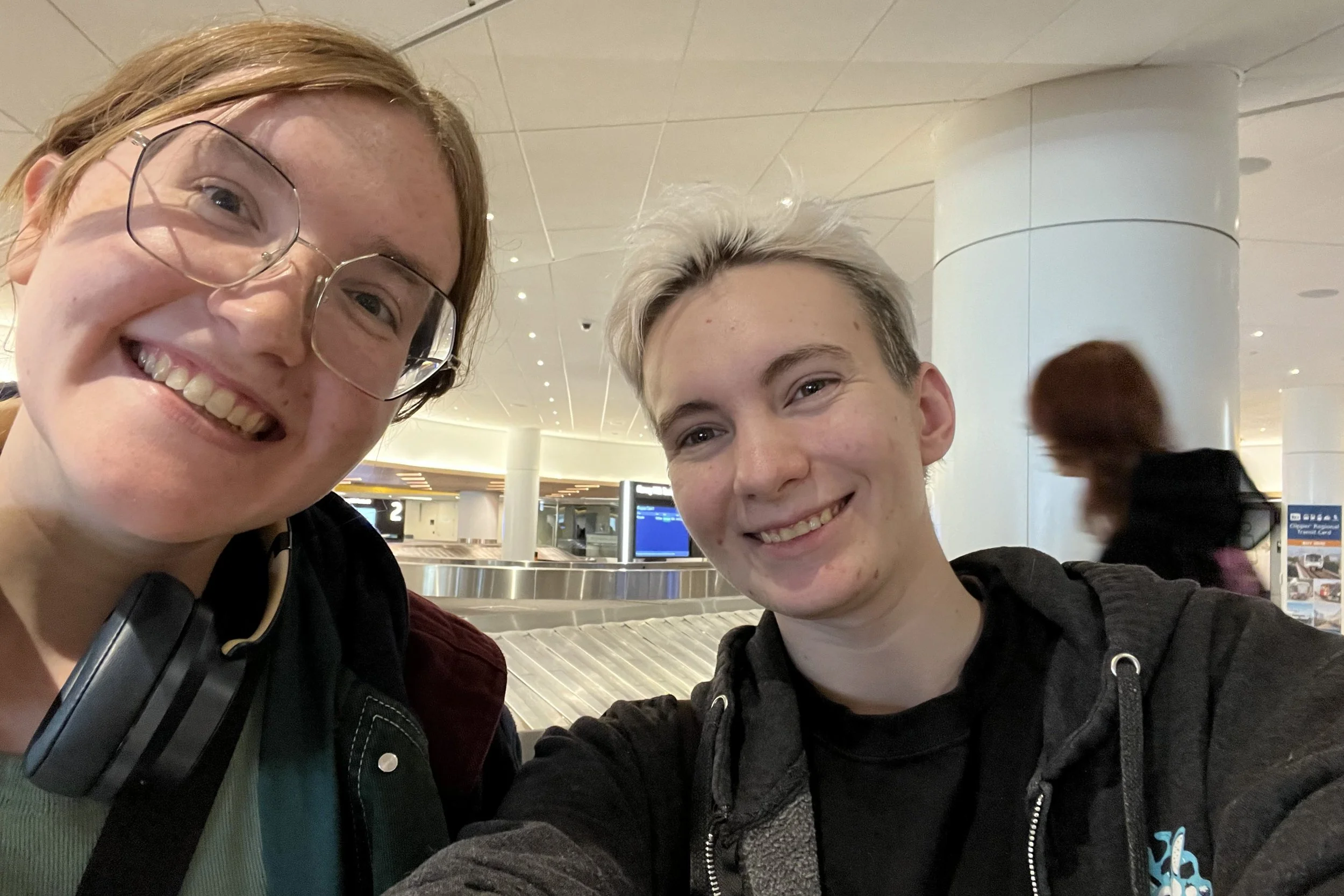Preparing for a Journey Towards Liberation
I have held a love for travel nearly my whole life, and I have especially loved travelling to cities. When I was fortunate enough to study in Lyon for a semester, one of my favorite parts of the immersion was just being able to walk around during the day and interact with people. Meeting new people and experiencing the city, finding the hidden gems outside the popular tourist spots, that’s what truly drives me to explore.
My first semi-solo travelling experience happened my senior year of high school, when I flew alone from Wisconsin to LA to stay on my sister’s couch for spring break. While there was a limit to how much off-leash exploring I could do as a teenager, it was still an incredibly valuable experience; I believe that travelling to an unfamiliar city is the best way to step out of one’s comfort zone and build lifelong confidence.
As much as I love travelling solo, I am also grateful that I am going to be working alongside a group. I’m not nervous about visiting a city, and I appreciate the benefits that can come from experiencing it alone, but it’s always more fun to explore with a friend.
One of the other aspects of travelling I have always loved is the chance to be in a more openly progressive area. LA is known as one of the progressive hotspots of the U.S., and Lyon was one of the queer capitals of France. Even after I’ve been living in Wisconsin for so long, I’ll never forget how it feels to be able to walk down the street as myself, to feel recognition and acceptance in the eyes of strangers.
In a time such as this, I feel a chance at that experience is even more valuable. More importantly than travelling to those progressive areas, though, is the ability to bring that opportunity back to the people who are unable or unwilling to travel themselves. That radical acceptance shouldn’t be limited to only the cities, and I believe that, as those fortunate enough to have this opportunity, we have a responsibility to make it a reality.
In our preparations for this trip, I’ve been thinking a lot about the divide between assimilation and liberation. In the past decade or so, the majority of mainstream queer rights movements have been focused on “normalizing” queerness for the sake of future assimilation within heteronormative society. As I’ve been trying to go stealth this past year, I can empathize with the desire to assimilate; the prospect offers the promise of safety and security, something that the queer community has always been deprived of. While there’s a part of me that also wants that security, I can’t help but think of the real cost of that offer.
Assimilation within an oppressive society will always require a scapegoat, someone or some group to throw to the wolves to absorb the violence necessitated to maintain an obedient populace. Every few years, mainstream queer movements seem to collectively agree on who they are willing to sacrifice. For the longest time, effeminate homosexuals and lesbians were cast aside to make room for homosexual men who desired to integrate smoothly into heterosexuality. As societal awareness grew, blame shifted. Association Arcadie, a French homosexual organization which marketed itself on respectability, criticized a “world of permissiveness, of irresponsibility, of frivolity, of obscenity,” distancing itself from those in the queer community who would not — or do not — conform to strict heteronormative gender roles. Then it was bisexuals, then transgender people, and so the cycle continues.
H.L. Mencken once wrote, “The trouble with fighting for human freedom is that one spends most of one’s time defending scoundrels. For it is against scoundrels that oppressive laws are first aimed, and oppression must be stopped at the beginning if it is to be stopped at all.” The most difficult and most important factor in progress is solidarity, and assimilation will never allow for true solidarity.
Liberation is on my mind as I prepare for this immersion, and I hope to find evidence of its possibility in the midst of such a pivotal moment in our time.

